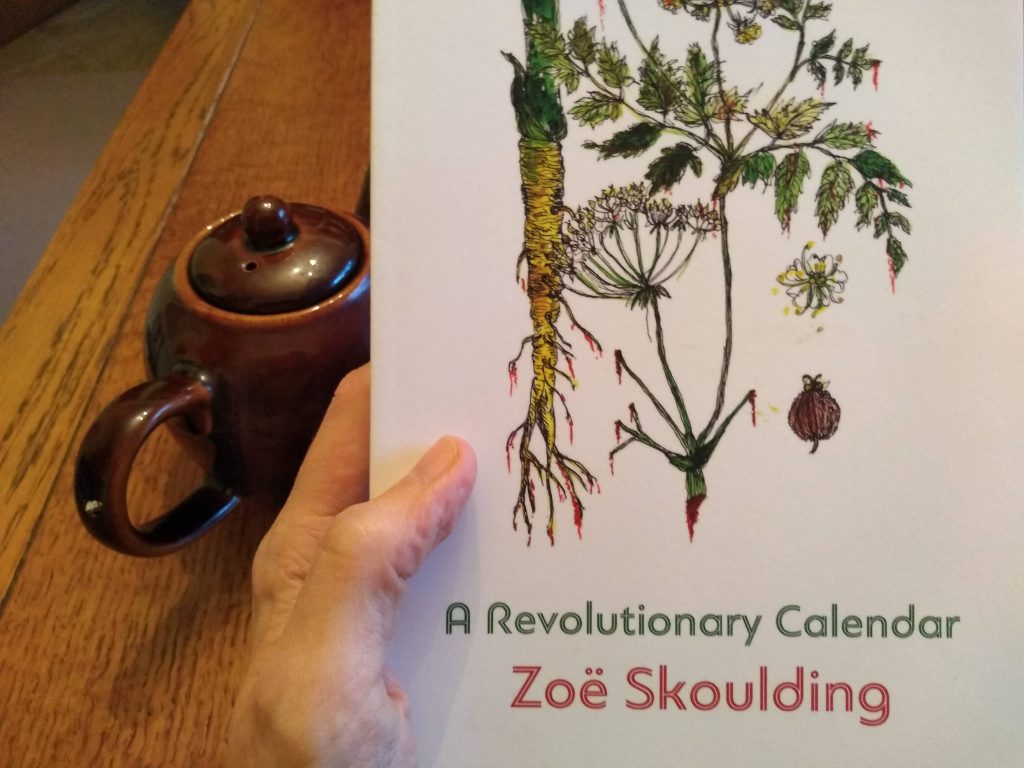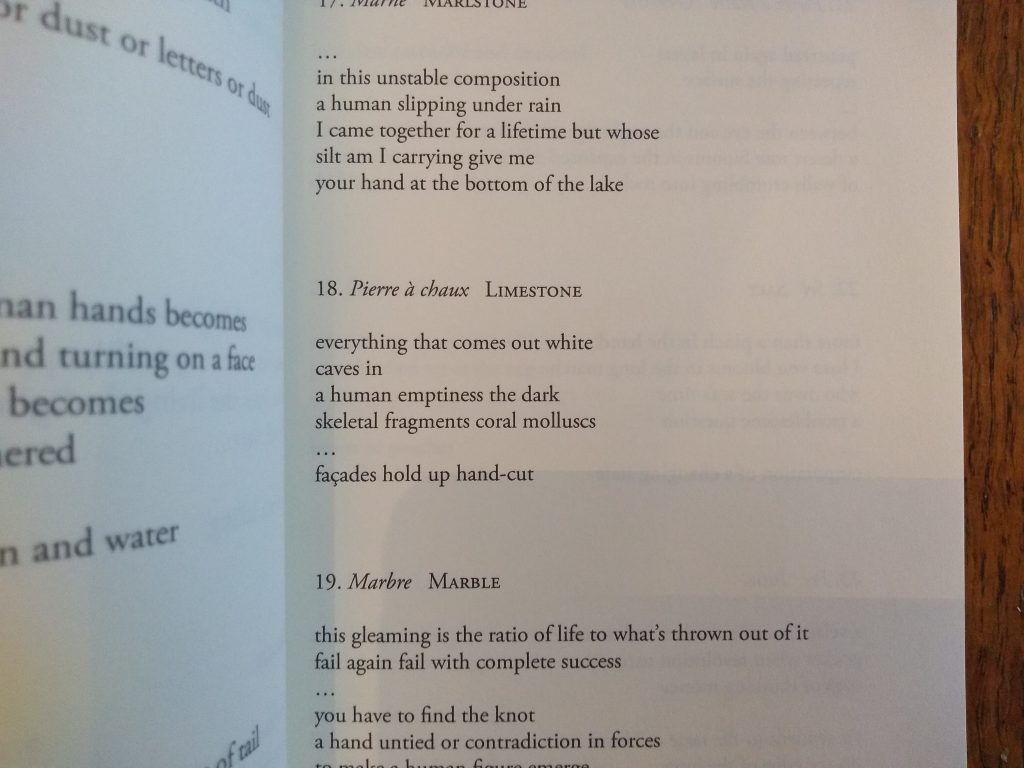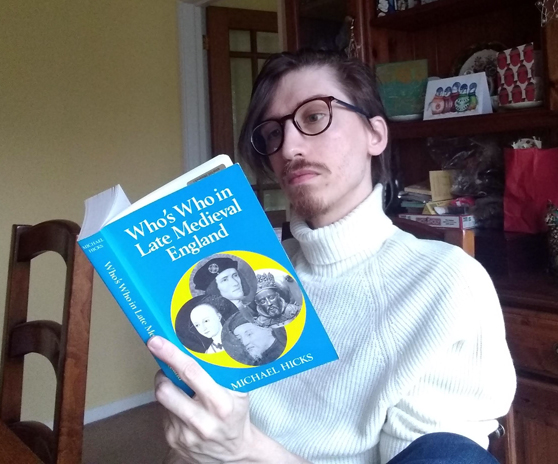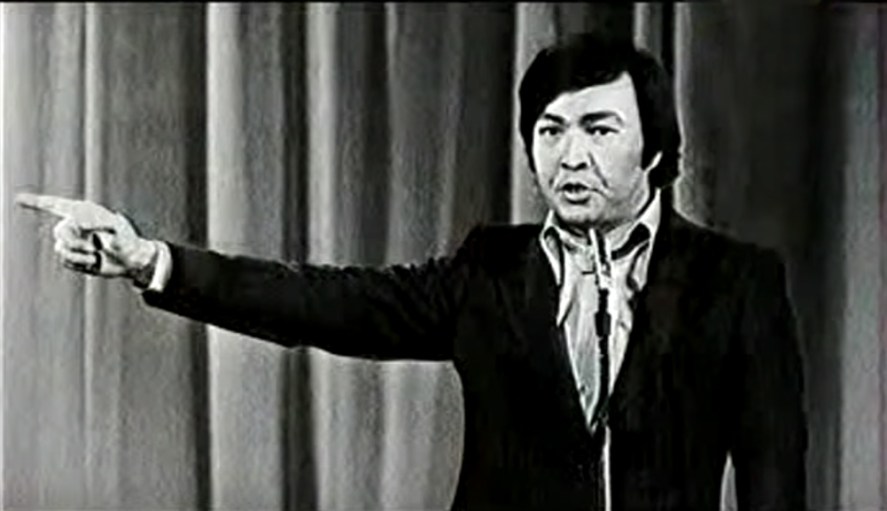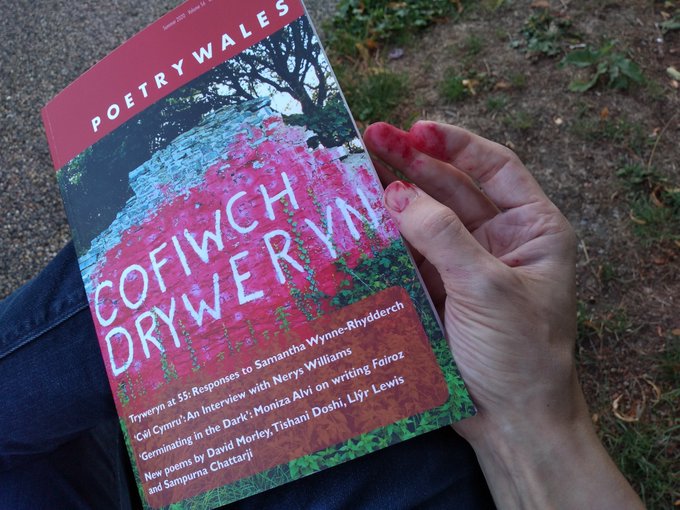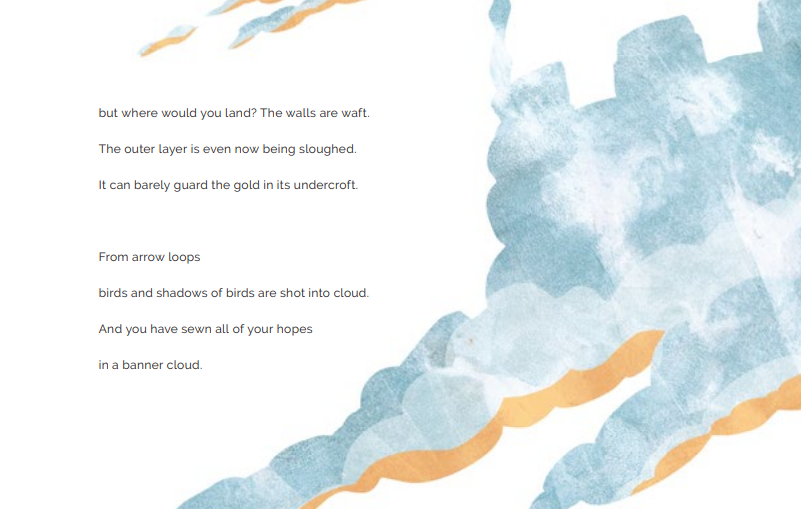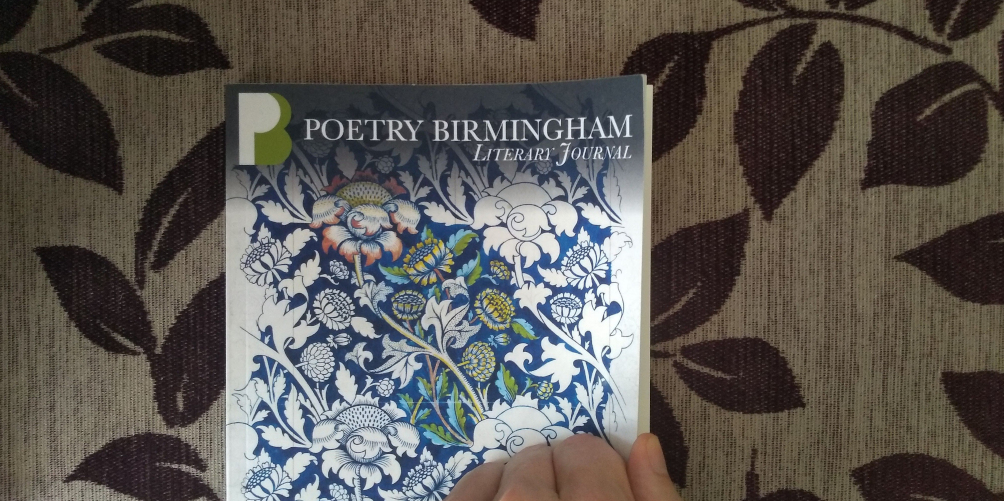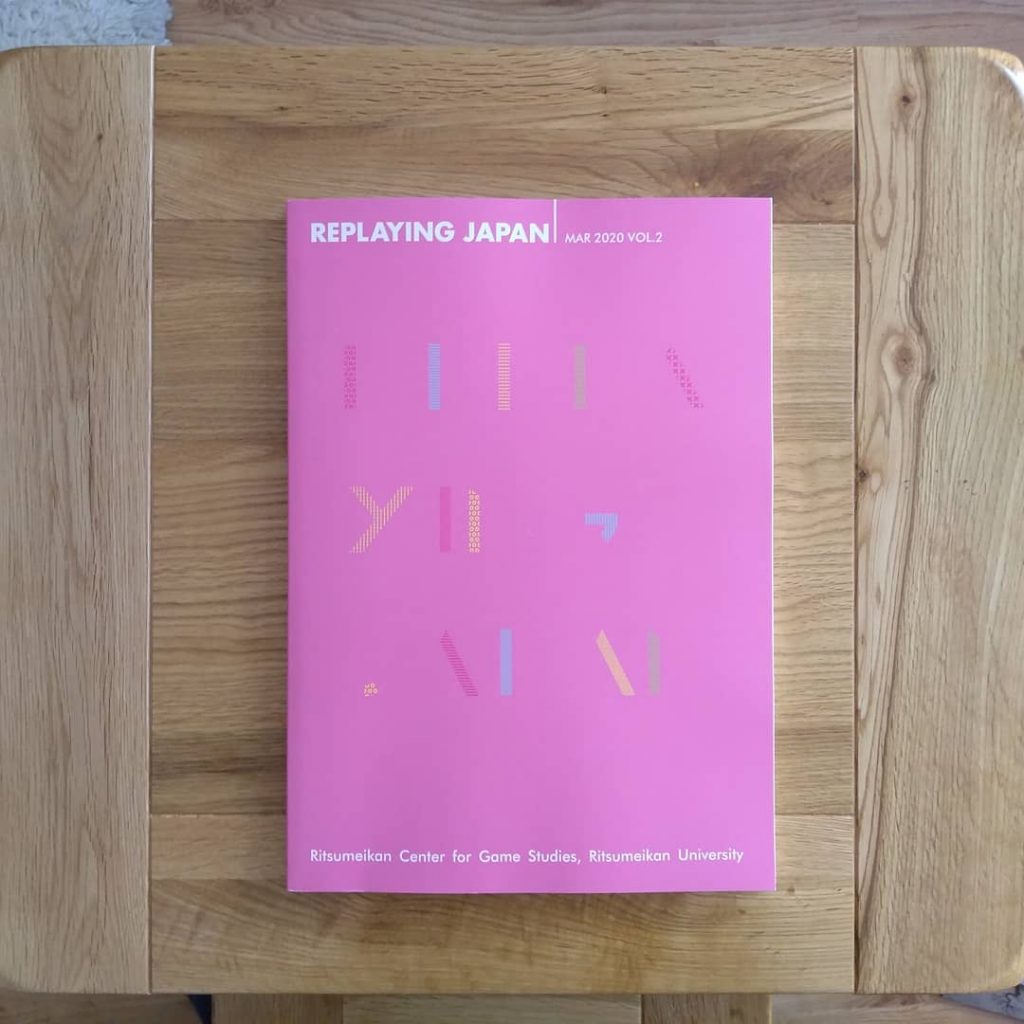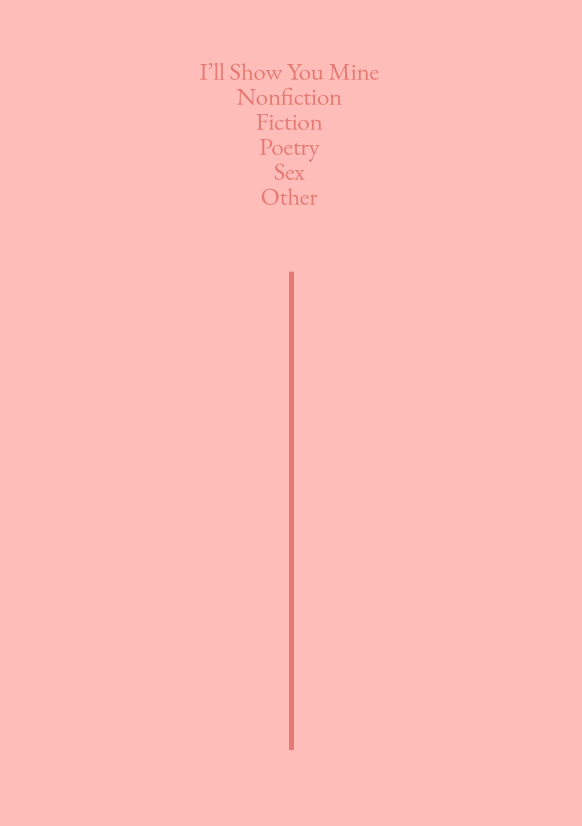This is the first chapter of my completed practice-led PhD thesis, Dual Wield: Adventures at the Interplay of Poetry and Computer Games. I recommend skipping the entirety of 1.2 if you wish to stick to the substance of the argument and avoid the dryer aspects of the chapter (my methodology, and where the project fits within existing scholarship).
Tremendous thanks to Patrick Crogan, Britta Martens and Abigail Parry for looking over this chapter and commenting on it in detail at various stages of its life.
A world of made
is not a world of born — pity poor flesh
and trees, poor stars and stones, but never this
fine specimen of hypermagical
ultraomnipotence.
(Cummings, ‘pity this busy monster, manunkind’ 9-13)
In July 2016, players discovered a
secret code hidden in plain sight in Inside
(Playdead, 2016), a puzzle-platforming computer game released across PC,
Playstation and X-Box one month previously. Towards the end of the game, the player’s
avatar passes in front and behind two glass panels bearing a sequence of
numbers. When decoded using a Polybius Square, these numbers were revealed as
referencing the title of a sonnet by E.E. Cummings, ‘pity this busy monster,
manunkind’ (Cummings, 1944).[1]
Read in the light of this
discovery, the poem complements and expands on the philosophical themes of Inside. Poem and game talk to one
another. Cummings’ arch-scepticism toward techno-fetishism (Yaron, pp.116-117) is
reflected in the desaturated, near-lifeless vistas that make up the game’s
world, replete with killer machines. Both deploy formal ingenuity (the poem’s
compound words and idiosyncratic diction, the game’s surreal physics puzzles)
as funhouse mirrors to the “world of made”, turning gloom into playground.
Cummings’ exhortation to “pity poor flesh” resonates with a recurring device in
Inside whereby the player, via their
avatar, takes partial control of human facsimiles – flesh without independent
thought, sullenly slumped when at rest. These facsimiles grow more and more
featureless until, in the final stages of the game, the player becomes the
guiding will of a great, moving jellyish mass of body parts as it attempts to
escape the grim facility in which it was born (or made). Both poem and game separate,
at the level of their semiotic interface (so words in the one case, interactive
digital objects in the other), the physical body from mankind’s collective techno-scientific
knowledge, “poor flesh” from the “fine specimen of hypermagical /
ultraomnipotence” represented by scientists in their laboratories. These are
placed in opposition to one another, though both are, in their own way, “busy
monsters”. Poem and game end by teasing the player/reader with the sense that
freedom is both possible and impossible: the speaker in the poem interrupts
himself to urge a visit to “a hell / of a good universe next door”, while the protagonist
of Inside crashes through the outer
wall of their prison, tumbling down onto a shoreline that is implied (via an
earlier small-scale model of the scene) to be nothing more than a set, another
room in a larger containment facility.
This is one example of what I will be referring to as the interplay of poetry and computer games, ‘interplay’ being both the collaborative act itself and the space where it happens. In this case, the poem is not contained inside the game, was not originally composed for publication in a digital medium, was not even composed with the game in mind. Yet the game recruits the poem, pointing the player toward it, offering not the poem itself but its import as a reward for attentive play and deductive intelligence. The poem attains an additional frame of reference within the realm of its reader’s direct (and probably recent) experience playing the game, while the game gains an additional mode of voice. They are yoked together in a coherent expressive continuum.
This project takes the form of a
combination of conventional theoretical analysis and practice-based research,
analysing the existing state of poem-game interplay and hybridity and testing
ways that it might be advanced through attempts to create working prototypes. In
Robin Nelson’s formulation for practice-led research, there ought to be “a resonance
between complementary writing and the praxis itself” (2013, p.11), a multi-mode
enquiry where the practice is “at the heart of the methodology of the project”
(p.26), flanked by a documentation of process and the written component. In
this case, I begin with an introductory chapter that outlines the immediate
cultural and critical context for the enquiry, followed by a second chapter
that explores, through a review of the literature, the theoretical underpinning
to the project: an experiential and conceptual overlap between poetry and
computer games, based on the core underlying concept of play.
This then forms the appropriate starting point for an initial series of practical experiments into hybrid poetry games, which are published and playable online, where they are accompanied by individual exegeses and documentation of process. Their purpose is to experiment with the forms poem-game interplay might take, and to point toward specific issues, tensions and limitations that arise in producing these forms.
That practical work feeds into a third chapter which analyses
the tensions and limitations in detail. Put simply: is it possible to create
something that can be read as a poem and played as a game at the same time? Are
the differences between these media types too great, the modes of engagement
they invite too distinct? In answering these questions, I devise three
continuums that serve to help visualise the tensions between poetry and
computer games, so that I and other practitioners can consider how to either minimise,
mediate or exploit them in future experimental forms.
In the chapter following on from this, I develop a taxonomy
of four major types of poem-game interplay, including but not limited to hybrid
artefacts, and analyse a number of existing examples using the continuums
devised in the preceding chapter. This taxonomy then informs a further series
of practical experiments, where I attempt to expand the categories individually
and then document my overall conclusions from carrying out these experiments. The
practical component of the project, in conjunction with theory, allows me to develop
insights into poem-game hybridity from two opposing perspectives – as a practitioner
and as a reader and player. Each is valuable in informing the other. The
taxonomy, for example, is useful for shaping and categorising the practical
output, while the early experiments assist me in formulating Chapter 3’s continuums.
The project is intended as a contribution to both games studies – a recently developed area of academic study that has emerged in response to the increasing ubiquity of computer games – and literary criticism, and pursues a dialogue between these two disciplines. In this respect, it builds on the work of Astrid Ensslin in Literary Gaming (2014). Ensslin observes that we are entering a second wave of games scholarship, moving away from debates and discussions about the nature and boundaries of the discipline and increasingly turning to detailed analysis of specific areas. Situating her work within this second wave, Ensslin considers ludic-literary hybrids – artefacts that exist on a scale that runs from “ludic digital literature” to “literary computer games” (p.44) – and develops an analytical framework that combines elements of literary analysis and ludology. For Ensslin, literary here means “verbal art in the broadest sense”, but also works that have “an aesthetic concern with structural and thematic elements of their own form, genre, or medium” (p.2).
The approach to poem-game interplay I adopt in this project is rather different to Ensslin’s. It is narrower in the sense that I am not interested in literary fiction or drama, or any literary form where narrativity is the dominant. It is wider in the sense that Ensslin emphasises the self-reflexivity of verbal art, which she regards as necessarily engendering “subversive play” or “playing with rather than by the rules” (p.19), while also confining herself to digital-born artefacts that foreground spoken or written language. I will instead be discussing poem-game interplay as an area that includes texts that are not digital-born but which refer to, address or otherwise involve themselves with computer games, as well as computer games that adopt the strategies of poetry without necessarily foregrounding the spoken or written word. I will not be taking it as self-evident that verbal art is self-reflexive or subversive, or that it deconstructs its own rules.
Ensslin conceives of a specific category of poetry games in the eighth chapter of her book, “The Paradox of Poetic Gaming”, where she contends that the differences between poems and games ensure that there is a “receptive and interactive clash” (p.142) when the two are brought together. She considers this a deliberate design decision by the developers of hybrid poetry games, intended to critique gameplay habits of players, as well as the conventions of mainstream gaming culture. I will go into this in more detail in Chapter 3, but my contention throughout this project will be that poem-game hybridity extends beyond this act of cultural critiquing, and that the paradox as Ensslin envisages it is, in fact, negotiable. To the extent there is a receptive and interactive clash, it can be either mitigated or pointed toward different artistic ends, as I will aim to demonstrate through both the practical component and analysis of existing examples.
Ensslin’s study of poetry games
is somewhat isolated in the existing scholarship; while games studies is
regarded in the academy as being closely allied with film and media studies, it
enjoys little crossover with English departments, and where literary theorists
have embraced computer games more generally, they have tended to fixate on
narrativity to the exclusion or side-lining of poetry. Writing on digital and
new media poetics, meanwhile, has revolved largely around the platform of the
internet browser and artefacts that are interactive without aspiring to
game-like qualities. In the field of literary criticism itself, there are
myriad overlapping theoretical approaches which may be drawn on, from freshly
dusted-off historicism to “surface reading” (Best and Marcus, 2009), but for
the purposes of this project, the most appropriate point of departure is
Marjorie Perloff’s Radical Artifice:
Writing Poetry in the Age of Media (1991). Perloff begins with the premise
that contemporary poetry is unavoidably in conversation with digital media, and
that studying it without regard to that context is limiting. The nature of the
relationship between what she calls “the most remote of the various literary
genres” (p.xiv) and media discourse in the information age is enormously
complex, giving rise to poetries that reject mimetic naturality (of speech and
thought) in favour of radical artifice – that is, embracing their very made-ness
and materiality. These poetries absorb and remix the form and language of
advertising, television, film, the internet and more besides, in advanced acts
of defamiliarisation, emphasising the text as image, procedure, assemblage and
object, something to be toyed with, tested and explored rather than merely
read.
Perloff’s concluding example is
John Cage’s “unreadable book”, I-VI,
which she describes as soliciting a kind of reader engagement that “involves making rather than taking” (p.216), a phrase that is inadvertently echoed by games
scholar Brendan Keogh when he says that computer games “call for the player to actively make belief” (2018, p.83). The
reader of I-VI is tasked with being
alive to their own agency in picking a path through the text, in making meaning
from it, in a manner similar to the way the player of a computer game makes the
effort to navigate and complete the game world. “That path,” says Perloff, “may
be aural (tracing the phonemic repetitions and variations) or visual (tracing
mesostic capitals versus the ‘wing’ word groups) or dialectic (reading the A
text [mesostic] against B [commentary] and both against C [source]) or semantic
(inspecting the recurrent ‘news’ items and relating them to the abstract
speculations that surround them), or, for that matter, literary” (p.216).
Removing the specificity to
Cage’s text, this is a critical perspective on poetry that describes it in
nonlinear terms and emphasises the existence of poetic units beyond the
literary: visual, spatial, aural and so on. Perloff’s subject is avant-garde
techniques developed in the late 20th century, but these have only
proliferated in the years since Radical
Artifice was published, even crossing into mainstream poetry. My own
background as a practitioner in poetry and poetry publishing has seen me
collaborate with a variety of British poets whose work ranges from traditional
lyrics to experiments in concrete and calligraphic poetries, digital
interactive poetry, film poetry, hypertext poetry, code poetry, collage and
procedural poetry. Any or all of these may overlap with the kind of poetry that
interplays with computer games, so I will adopt a wide-angle viewpoint, one
that approaches the poem as a restlessly pliable and playable contrivance.
The possibilities of poem-game interplay
are intimately connected to the question of poetry’s expansion into digital
space. In his essay ‘Poetry and Hypertext: The Sense of a Limit’, Fernando Cabo
Aseguinolaza quotes the Nobel-winning poet Octavio Paz, writing in 1991 on the
significance of screen technology to the medium:
The two great poetic traditions, written and oral, converge on television screens … The page becomes an animated surface, which breathes, moves and changes from one colour to another. At the same time, the human voice – or rather, voices – can be enjoined in combination with the lyrics. Finally, visual and sonic elements, instead of being mere adornments, may be transformed into organic parts of the body of the poem. (1991, p.597)
Aseguinolaza extrapolates to the
computer screen:
It is not easy to find a description that suits better the enticement of the electronic medium for a poet. A screen that breathes, moves, and changes restlessly in contrast with the steadiness of the printed page. The screen as page, but a page of a completely different kind. We may wonder what Octavio Paz could have said in case he had noticed the possibilities of modern computers to enhance the animated power of the screen and to lend new dimensions and a sense of autonomy to the written word. (2000, para 11 of 26)
Similarly,
Loss Pequeño Glazier has composed a manifesto for digital poetry in the shape
of his 2002 book Digital Poetics: The
Making of E-Poetries, in which he argues that “an electronic poetics
alters the ‘eye’ (‘I’) and also extends the physicality of reading. With the
keyboard, literal manipulation is engaged with fingers determining different
referentialities of the text – a sight more active than repetitious
page-turning” (2002, p.37).
It is curious, then, that in the intervening years there has not been more advancement by poets and poetry into the territory of computer games, arguably the medium most synonymous with the digital age. What games offer poetry is not just the technology of screen, keyboard, controller, but a significant experiential augmentation. As Keogh argues in A Play of Bodies, his recent phenomenological reading of computer games, players “become incorporated into an assemblage that is the player-and-videogame” (2018, p.22). Games bridge the actual and the virtual via multisensory feedback, pulling us bodily into their worlds while imprinting themselves on ours. This could function as an intensifier of the powers of suggestion already evident in poetry in a variety of forms. Poems are, after all, also envisaged as possessing a world. Frank O. Copley, writing on Catullus, for example, says that “a poem is itself. It presents its own world to its readers and demands that they accept it as true for the purposes of the poem” (1958, p.9). We can conceive of the physicality of reading being extended by the reader’s cybernetic incorporation into the world of the poem, a world that they can touch and interact with via computer control interfaces.
Additionally, computer games present an opportunity to expand
the linguistic armoury – and thus the expressive range – available to poets. Multiple
20th and 21st century movements have been based around
broadening the accepted range of suitable poetic material, from the Scottish Informationists’
concern with digesting and transmitting “underprivileged” data (Price, 1994,
para 1 of 18) to Flarf poetry’s assimilation and amalgamation of internet
detritus. Computer game culture, itself underprivileged in arts discourse,
represents another frontier of emergent assimilable dialect. Computer games are
extremely diverse in form and content, rich in visual, audial, textual and
symbolic matter. They also generate a great deal of paratextual material, in
the form of lore, strategy guides, player dialogue, user modifications, hacks
and rewrites, companion fiction, fan fiction and fan art. As with Perloff’s
account of poetry’s ability to absorb and remix the language of televisual
media, all this material has potential to be reformatted and deployed within
poetry, not just verbally but ideogrammically, imagistically or calligrammically.
This is, in short, an abundant new playground for poets, which this project
aims to begin mapping.
But of what interest is poetry to the creators and players
of computer games? As it stands, games already engage to some degree in the
absorption and “remediation” (Boulter and Grusin, 2000) of poetry, employing it
largely as filigree and incidental detail within vast virtual worlds. This
reflects a wider cultural perspective on poetry as occasional oddity, or, at
best, marker buoy for textual depth. The claim I will substantiate in this
project is that a more fundamental engagement is both necessary and inevitable.
Chapter 2 will explore the underlying conceptual overlap in detail, but by way
of an introductory overview, computer games and poetry share the dominant
organising principle of segmentivity, a term coined by the poet Rachel
Blau DuPlessis in 1999 (and later expanded on by literary theorist Brian McHale)
to describe an alternative to narrativity as a basis for textual organisation
and meaning. Where segmentivity is the dominant of a text, meaning is generated
by the paratactic arrangement of units – we see them working together side by
side, rather than (or as well as) reading them start to end in linear fashion.
We find significance in patterns and parallels, in coincidence and contrivance,
in rhyme and repetition, rather than (or as well as) in chains of logic and causation.
Computer games already rely on repetition as a device for
training players to successfully master their systems, as well as extending the
playtime offered. They rely, possibly to an even greater extent, on players’
facility with reading patterns and rhythms as the basis for many of the
challenges they set. But it is rare that a game implies there is any meaning to
its patterning and repetition beyond enabling player embodiment and progression.
Quite the opposite: usually, narrative is superimposed over the gameplay
experience, and the player is asked to ignore or forget the repetitiousness of
their actions and the segmentation of the game environment in order to make
sense of the game as a narrative work. In a typical action game, for instance, it
is possible for the player to watch their avatar die and relive the same
moments dozens of times, rewinding time until they make exactly the right
decisions, only for the story to proceed as if the avatar possessed no such
ability.[2] Jesper Juul characterises
this tension as a dichotomy between real rules and fictional worlds,
rendering games “half-real”[3] (Juul, 2005). Parataxis – side-by-side placement –
adequately describes the way a computer game arranges its components in order to
facilitate gameplay, but the tendency of games is to chafe against this
arrangement as part of the effort to build meaningful context around that gameplay.
Viktor Shklovsky, in 1917, defined art as a defamiliarising technique, to
“impart the sensation of things as they are perceived and not as they are
known” (1917, para 11 of 40), a counterforce to habitualisation, which
Shklovsky memorably describes as devouring all wonder. In presenting themselves
as stories, mainstream computer games work in the opposite direction: they are
naturally unnatural, necessarily contrived, but labour to habituate the player
to their alienness, to be perceived as life-like. By adopting the signification
strategies of poetry, computer games have the opportunity to embrace their own
strangeness rather than seeking to neutralise it. Poetic devices such as the
refrain, anaphora, epistrophe and homeoteleuton, for example, are forms of
repetition that can be enacted through the recycled surface textures, objects
and player actions within the world of the game, just as they are with words.
To put it simply: the computer game has historically evinced
a predominant interest in becoming an advanced kind of story. It has yet to convincingly
explore the possibility of becoming an advanced kind of poem, and one basis for
this project is that such exploration is a route to expanding the versatility
and impact of the computer game as an artform. Additionally, the experiential
augmentation that computer games offer poetry runs the other way as well. Words
by themselves retain a unique, near-limitless expressive power, and may be used
much more concertedly to give shape and meaning to those bodily sensations
experienced by the player as they interface and coalesce with the game-world.
I advance this research project at a point when poets and
game developers alike are starting to experiment with the possibilities
described above, when it is not unknown for an independently produced computer
game to proudly pronounce itself “poetic” (Morgondag, 2015), for a poem
published in a leading British journal to take its central metaphor from Super Mario Brothers (Ravinthiran, 2018),
or for a young artist to identify as both poet and game developer (Douglas, 2015).
The tools required to make and publish computer games are more widely and
cheaply available than at any time before, while the visibility and centrality
of contemporary poetry has been immeasurably enhanced by the proliferation of
social media and easy-to-maintain web hosting platforms. Enough examples of
poem-game interplay and hybridity now exist for the associated challenges to be
interrogated and a tentative taxonomy to be developed. This project is intended
to fill that gap.
There are a number of surface-level similarities
between poetry and computer games that, on initial inspection, are useful in
analysing and developing poem-game interplay. Both are conspicuously segmented
in ways that are aesthetically foregrounded. Poems divide into stanzas, lines,
phrases, words and metrical feet, games into stages, maps, zones, rooms,
biomes, difficulty levels, menus and submenus. Both habitually deal in the
fantastic – their worlds are dreamlike or highly imaginative. Both are
associated with challenge; that is, there is a popular idea that to be able to
play computer games proficiently or to be able to understand poems takes
practice and patience in a way understanding stories or watching films does
not. As such, both attract debate as to the role of accessibility, with
defenders of difficulty rejecting what they regard as condescending to their respective
audiences, while reformers point to their niche status, their struggle to be
taken seriously by both mainstream news media and the wider public.
Perhaps most pertinently, both are known to absorb, incorporate and amalgamate other forms and genres. Poetry does this most noticeably with types of speech and writing – we can think of Robert Browning’s development of the dramatic monologue poem, for example, the long tradition of the epistolary poem or the more recently invented prose poem. Dick Higgins’ Pattern Poetry: Guide to an Unknown Literature (1987) reviews examples of puzzle and pictorial poems across a variety of languages and cultures over several centuries, while Perloff documents avant-garde poems that imitate or inhabit the form of signboards, maps, inventories and sculpture. The popularisation of the computer has resulted in a period of continuous experimentation with advanced methods of assimilation and rearrangement, beginning in 1959 with Théo Lutz’s Stochastische Texte, a poetic text generator that reordered lines from Kafka. In 1971, while Galaxy Game, the world’s first commercial arcade machine was installed at Stanford University (Pitts, 1997), Alan Sondheim created 4320, a film-poem made using a hypercube projection program, and in 1976, the year of Breakout (Atari, 1976) and the founding of Apple, Angel Carmona published Poemas V2: Poesia compuesta por una computadora, the world’s first book of computer-generated poetry, printed so as to replicate the appearance of an IBM computer readout. Code poetry incorporates the aesthetics and some of the functionality of computer code, while the procedural poetry produced by Twitter bots may be constructed algorithmically from fragments of social media or include images pulled from online databases.
On the other side of the
equation, computer games habitually simulate, synthesise or approximate almost
every other kind of media, from film and music to card games and handwritten
letters. They are an integral part of the trend that media scholar Henry
Jenkins has dubbed “convergence culture” (Jenkins, 2006), where media
franchises extend across and between old and new media, developing audiences
that migrate across genres and technologies in order to immerse themselves as
fully as possible in fictional realities. Computer game developers, encouraged
by rapid technological progress and the explosive growth of their industry,
have increasingly aspired to reproduce the effects of narrative media as part
of the suite of experiences that games offer, promising their users something
close to the starring role in action films and mystery novels.
Beneath the surface similarities,
however, there are significant phenomenological and cultural differences
between poetry and computer games. In the popular imagination, they lie at
opposite ends of a scale that runs from the aloof to the frivolous, from high
art to low. Poetry is regarded as serious, cerebral, cryptic and hermitic,
computer games as flashy, trivial and senseless amusements. Poetry is
technologically simple and semantically complex; computer games are
semantically simple and technologically complex. One of the barriers to
emergent hybridity and interplay is the accompanying perception of any such
cross-pollination as detrimental in both directions: poetry being trivialised
by association, and computer games being made duller, less playful.
There are practical problems
related to this distinction. Keogh describes certain types of game as
inculcating and requiring “embodied literacy” (p.14); that is, familiarity with
the controls and the routines that need to be enacted by the player. As a
result, non-gamers may find games difficult to read visually, let alone play.
Poetry, meanwhile, requires its own form of specialised literacy, and the
number of people who are fluent in understanding and inhabiting both computer games
and poems is likely to be extremely small.
This is true to an even greater
extent of the practices of making games and poetry. The technological tools may
be available, but poets and game developers alike spend years honing their
expertise, with game development requiring (more often than not) the
coordination of teams of people working on different aspects of the game. The
pressures on practitioners to succeed within the parameters of their chosen
medium is already intense, the competition fierce, and as Don Paterson warns in
‘The Dark Art of Poetry’, the process of making poetry alone is “messy, insane”
(2004, para 3 of 13) and liable to drive the poet mad – or, as T.S. Eliot puts
it:
… each venture
Is a new beginning, a raid on the inarticulate
With shabby equipment always deteriorating
In the general mess of imprecision of feeling.[4] (Eliot, ‘East Coker’ V. 7-10)
The title of this project, ‘Dual
Wield’, in part reflects the difficulties presented by this wider cultural
context. It is taken from the name of a special ability in role-playing
computer games, which typically allow a player avatar or ally character to arm
themselves with a weapon in each hand at the cost of both weapons’ strength. In
the Japanese role-playing game Bravely
Default (Square Enix Holdings, 2012), for example, fitting a weapon into
both the ‘l.hand’ and the ‘r.hand’ slot will result in the attack power of each
weapon being reduced by 50%. Only a character with the ‘dual wield’ ability can
bring the attacking power of both weapons to bear.
I employ this here as a metaphor:
experiments in poem-game interplay and hybridity carry the risk of reducing the
effectiveness of both, of creating artefacts that are abrasively difficult to
read or play and which have diminished appeal to both readers of poetry and
players of computer games. In the context of this project, I am restricted by a
lack of experience in game development and a lack of personnel, and as such I
will not be able to comprehensively address the problems I raise here. The
practical and theoretical components alike are, however, aimed at exploring,
itemising and examining the resulting incongruities with a view to developing ways
of mitigating and overcoming them, and therefore ‘dual-wielding’ poetry and
computer games effectively in future compositions.
One of the functions this serves
is to challenge the view of computer games as empty of expressive purpose or
meaning. As Mary Flanagan puts it in Critical
Play: Radical Game Design, her survey of (and manifesto toward) expressive
and critical game design:
As a cultural medium, games carry embedded beliefs within their systems of representation and their structures, whether game designers intend these ideologies or not … Many scholars, game makers, and consumers observe that computer games can embody antagonistic and antisocial themes including theft, violence and gore, cruelty, problematic representations of the body in terms of gender and race, and even viciously competitive approaches to winning as a primary game goal. (2009, p.223)
I enjoin with Flanagan in aiming to map
out ways in which the expressive power of computer games can be turned toward
more socially responsible themes, as well as ways in which existing elements of
computer games can be recontextualised through their incorporation in poetry, by,
for example, moving literal depictions of violence into the realm of the mythic
and metaphoric.
In working to overcome some of the practical obstacles to poem-game hybridity, the project also agitates against the more general perception of a divide between serious and trivial media types. The separation of these different types into one of high or low art is, in any case, a formulation that undergoes constant revision, such that the hierarchies of genre that prevailed in previous eras look antiquated today. In ‘Genre and the Literary Canon’, Alistair Fowler records that throughout the late sixteenth, seventeenth and early eighteenth centuries, the epic poem was regarded as “the chief effort of human sense” (John Sheffield, Earl of Mulgrave, in his ‘An Essay Upon Poetry’, quoted in Fowler, 1979, p.100) while love poems, sonnets and epigrams were seen as altogether more frivolous, with Dryden criticising Tasso for being “too lyrical” and including “conceptions, points of epigram and witticisms; all of which are not only below the dignity of Heroic verse, but contrary to its nature” (1760, p.167). Just as these genres of poetry have been reorganised, separated and conflated over the ages, coalescing into the image of poetry that prevails in the present day, so is it conceivable that at some point in the future, digital-ludic poetry and poetic computer games will be regarded under the same broad category, and thereby resist negative preconceptions based on the supposed shallowness of games or antiquity of poetry.
Ensslin’s rationalisation for ludic-literary hybrid artefacts and the accompanying scholarly analysis is that both are “urgently needed to grant creative writing a more contemporary, media-savvy outlook, as well as to expand and advance the artistic and critical significance of games” (p.1). I would add that these artefacts represent an opportunity to introduce both poetry and computer games to audiences not otherwise inclined to engage with them. Players of games will find that poetry may be engaged with as another kind of imaginative play, while readers of poetry will find that there is meaning and depth to be found in digital toys. The interplay of poetry and computer games is a space that, if properly established, promotes dialogue between two different groups of people. An important step toward that point is arming practitioners with tools, analysis and example texts that begin to map out the multiple forms that poem-game interplay and hybridity can take.
[1] For a visual guide to how the code was cracked, see http://imgur.com/a/USImD [accessed 20th August 2019]
[2]
The most infamous case of this in gaming culture is the death of Aerith
Gainsborough in Square’s Final Fantasy
VII, released in 1997. Throughout this game and others like it, members of
the player’s party may be revived from near-death by the use of a commonly
available item called Phoenix Down. When the story calls for Aerith to suffer a
fatal injury, none of the other characters even consider the chance that she may
be revived.
[3]
All phrases present in the title of Juul’s Half-Real:
Video Games between Real Rules and Fictional Worlds (MIT Press, 2005).
[4]
I owe this observation to an article by John Hartley Williams published online
at http://www.pennilesspress.co.uk/poetry/john_hartley_williams.htm, [accessed
20 August 2019].
